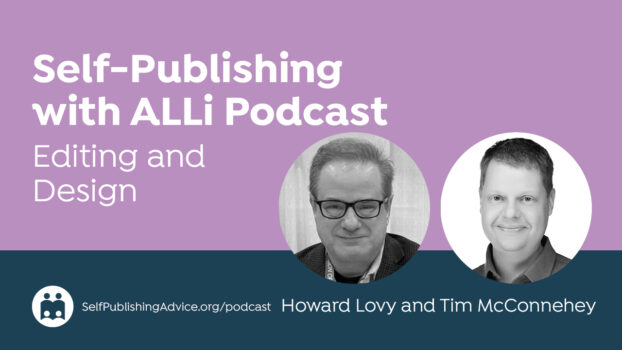As independent authors, one of the biggest challenges we face is “discoverability.” In the vast ocean of new books being uploaded onto Amazon every day, launching our own may feel a bit like casting a tiny message in a bottle into titanic waves. In order for our readers to find us, we need reviews—a lot of them—and preferably great ones from well-known and respected sources. With this in mind, Kristan Julius, ALLi author member checked out the Publishers Weekly BookLife Prize. This is her review and experience. If you want to enter prizes, don't forget to check out ALLi's watchdog of competitions and prizes right here.

Kristan Julius
What is the BookLife Prize?
The BookLife Prize is an annual indie writing competition divided into two contests (Fiction and Nonfiction), each part of which is held separately. Sponsored by BookLife and Publishers Weekly, its mission is “to support independent authors and discover great written works.” There are five categories for the fiction contest: General Fiction, Mystery/Thriller, SciFi/Fantasy/Horror, Romance/Erotica, and YA/Middle Grade Fiction. The non-fiction section is a new addition, and entries are currently being accepted. Both contests of the Prize are judged by “PW reviewers, editors, acclaimed authors, and publishing veterans.” Entrants receive their reviews via e-mail, and if they choose, can also make them public on the BookLife Prize site.
If you’re anything like me, you likely approach entering writing contests with the same trepidation as bungie jumping. So before I took the leap, I queried several of my writing community forums, including our ALLi FB group, hoping to glean more information about the BookLife Prize. The responses were decidedly mixed, and initially, several negative comments—its relatively high entry fee, authors who felt their reviews weren’t fair, etc.— had me hearing alarm bells. But then Orna Ross weighed in to list a number of convincing positive aspects of the contest. At her suggestion, I contacted some previous participants to further pursue my inquiry.
Real Experience of The BookLife Prize
One of these was Rozsa Gaston, author of the Anne of Brittany Series, who submitted an entry in 2018.
“Winning the General Fiction category put my book Anne and Louis on the map. It resulted in more sales for my entire Anne of Brittany Series, of which Anne and Louis is Book Two.”
Michael F. Stewart, Canadian author of Ray Vs the Meaning of Life, has entered the BookLife Prize three times, and considers the contest to be,
“one of the very, very good ones… BookLife has everything I look for in a competition. It’s juried and uses credible judges (Publishers Weekly reviewers). It offers a real cash prize and valid commentary. The final round of judging named the judges (transparency). I really respected the quality of books I was up against. The prior winner went on to receive a publishing contract.”
(So did Stewart.) He did note that one year he received a report that he didn’t like, but since in the early round only one reviewer reads the submission, he accepts this as part of the process, as there is a measure of subjectivity involved in all award contests.
David Reiss, author of The Chronicles of Fid, offered this comment:
“The primary benefit of being a finalist in the BookLife Prize was that I gained useful quotes and blurbs that I could use to promote my own book…(which) have proven to be a significant boon for my own marketing campaigns.”
At the time of this writing, his second book of this series has advanced to the 2019 BookLife semi-finals.
On Entering The BookLife Prize
Based on these and other reflections, I took the plunge and entered. I followed the clear instructions to create my BookLife profile, uploaded my manuscript (still in ARC form and without a cover) and paid the $99 fee. Since I submitted close to the deadline of August 31, 2019, I only had to wait (in an agony of anticipation and dread) one month to receive my review. To say I am delighted with it is an understatement— though I’m aware it is only one review, it was encouraging to receive praise from a credible critic, and my husband is still having to pull me down from the ceiling from time to time. While I missed the cut-off to proceed to the quarterfinals by ¾ of a point, I feel I got a fair assessment of the work, (as do my editors), and my reviewer included a number of great “pull quotes” that I can and will use on my book cover, as part of my product description and on my author website. I’ve already used excerpts from this review to successfully generate excitement among my followers on my FB author page.
In Summary
Overall, I highly recommend the BookLife Prize for indie authors. It does take courage to put our work out there, but the fact that you can submit an ARC means that if your review isn’t exactly stellar, you have the opportunity to take the professional and constructive criticism on board to address any issues—before you launch that precious “bottle” on the sea.
The entry period for the BookLife Nonfiction Contest is now open through January 31, 2020. Click here for information on how to enter. Entry period for the next Fiction Contest will run from April 1, 2020, through August 31, 2020.
You can find out more about Kristan on her website, Facebook, Instagram.
Should Indie Authors Enter Awards and Prize Competitions? @kcjulius #selfpublishing #IARTG #ASMRG #amwriting #writingcommunity #writetip Share on X
OVER TO YOU
Have you entered any book prizes? What do you think are the best ones to enter for indie authors?





I have a question, if you don’t mind taking time to answer (and if you know the answer). I’ve entered my book this year, and it has the same score as about five other books. Do you know how they determine which books move forward to the quarter finals? I know it says the books with the ten highest scores, but does that mean the top ten books, or do more than ten books move forward if they all score above a set minimum? Trying to do the math and figure out if I’m in the running, or if I’m already out for this year.
I would have liked the opportunity to enter the BookLife Prize competition. Very much in fact for I have confidence in my latest novel: Llywelyn. Unfortunately the rules stipulate that entries have a maximum of 150,000 words. Llywelyn has 153,000 words. Why?
It would by unfortunate for Tolstoy and most of the Victorian Novelists, not to mention Leon Uris etc etc. Not that I equate myself with any of them of course.
Thanks a lot for this article. It is very helpful because it confirms what I had thought about The BookLife Prize, but wasn’t 100% sure about. I too submitted my novel to the prize this year, and got a good review with a mark of 7.5. At first I was a little disappointed with the score (not the review though!), but when I understood how many GOOD quality books participated, I knew mine can’t be that bad, especially because I believe they say 800 books were submitted last year.
I have also heard that there is only a small number of people who publish their reviews/scores on the The BookLife Prize’s site, because of disappointing scores, so, overall I’m pretty pleased.
To be honest, I feel that this is one of the few reputable contests for indie authors, really, since I’ve done my research and come across SO MANY ‘bogus’ contest in which EVERYONE wins a medal.
Indie authors, this is a GOOD competition to enter and measure your book against others. It tells you where you’re at amongst the professionals.